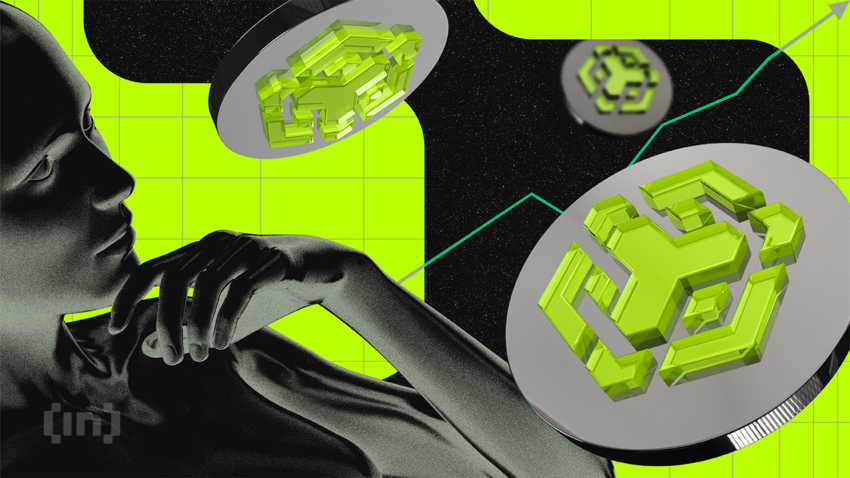Many people prefer to conduct financial activities privately. This is especially true for those buying and selling crypto. As one of the most popular cryptocurrencies, many BNB holders will naturally require a way to sell the asset while protecting their financial security. This guide shows you how to sell BNB without KYC so that you don’t have to worry about revealing any sensitive information.
KEY TAKEAWAYS
➤ Crypto ATMs like Bitomat allow users to sell BNB anonymously for cash by following simple steps.
➤ Selling BNB without KYC helps protect sensitive personal information from potential cyber threats.
➤ KYC helps prevent financial crimes, but it can also expose users to privacy risks, making anonymous transactions an important option.
➤ If selling your crypto for cash via a crypto ATM, choose a secure location, remain alert, and ensure the ATM isn’t tampered with to maintain safety during transactions.
➤ The anonymous purchase of BNB and other crypto is also possible via crypto ATMs.
- How to sell BNB without KYC: Step-by-step
- How to sell BNB without KYC using online pre-sale
- What is KYC?
- Why sell BNB and other cryptos without KYC
- Blockchains are pseudonymous
- How to use crypto ATMs safely
- Country-specific KYC requirements at Bitcoin ATMs (December 2024)
- Practice good operational security
- Frequently asked questions
How to sell BNB without KYC: Step-by-step
For this demonstration, we will use Bitomat’s Bitcoin ATMs. To sell BNB without KYC, simply:
- Find an ATM.
- Look for an option to sell BNB.
- Send your BNB crypto to the provider.
- Wait for confirmation.
- Collect your cash.
Here’s each step in detail.
1. Find an ATM: Use CoinATMRadar or the Bitomat website to find a Bitcoin ATM near your location.
Bitomat ATM map: Bitomat ATM
2. Select the sell option: Once you have located the ATM, select “Sell Cryptocurrency.” Choose the “Sell” option, select BNB, and enter the amount you want to sell.
3. Print out Bitomat address: You will need an address to send your BNB to. Print out Bitomat’s address for BNB and send your crypto. On the paper, you will see a QR code (Bitomat’s wallet address) and a barcode.
4. Receive your cash: After you send your crypto to the address, wait for the transaction to be confirmed on the blockchain. Scan the barcode. The ATM will then issue the cash, and a receipt will be generated. Keep it just in case you ever need to seek customer support.
How to sell BNB without KYC using online pre-sale
The first method to sell BNB anonymously works best for small amounts. If this does not match your requirements, selling BNB via an online pre-sale may be a better option for you. In summary, here is how it works:
- Go to the Bitomat website.
- Create the details of your transaction.
- Receive a bar code in your email.
- Go to the ATM and scan the bar code.
- Receive your cash.
Let’s take a closer look at each step.
1. Go to the Bitomat website: Scroll down, and select the button that says “Sell now and cash out in Bitcoin ATM.”
2. Create your sell transaction: On the following page, there is a lot of information to take in. Starting at the top left corner of the page, select the orange button that contains the arrow to select BNB.
Below this, you can see the address where you will deposit your BNB and an option to choose what fiat currency to receive upon payment. You can scan the QR code for a generic deposit, or you can create a QR code for a specific amount.
You will also see an ID that you will need to receive your crypto and a barcode to withdraw your money.
3. Go to the ATM: After you send your crypto to the address and the transaction is processed, you will receive a barcode in your email. Go to the ATM and scan the barcode. After your information is verified, you will receive your cash.
What is KYC?
KYC stands for “know your customer.” It is an umbrella term for any systems or protocols used to obtain identifiable information from users to prevent money laundering, terrorism, or illicit activities.
When you sign up for an exchange or any service that deals with the transfer of money, you will have to provide government documents, such as a photo ID, a recent image, an address, a phone number or email, or any other sensitive information to prove your personhood. This is the KYC process.
KYC is also used to prevent Sybil attacks. By requiring proof of personhood, KYC prevents someone from creating multiple accounts to try and game a system.
Most centralized exchanges will require you to KYC before you can fully utilize the services on the platform. This is done in order to comply with local laws.
Why sell BNB and other cryptos without KYC
In the modern digital age, KYC has become a double-edged sword. While it does prevent some malevolent activities, it also creates a honeypot for hackers. Insecure storage methods, weak cryptography, and poor operational security have created an environment of widespread exploits.
In Q3 of 2024, the number of weekly cyber attacks by organizations increased by 75% compared to the same time last year and 15% from the previous quarter. Therefore, transacting without KYC prevents companies from collecting information that could end up on the dark web.
Moreover, many citizens across the world may benefit from living in a developed country with democratic processes. However, this is not the reality for many people who may live in nations where political persecution, gender inequality, or racism is a real concern.
In these countries, citizens may be debanked, persecuted, or left without adequate means to survive. Being able to transact anonymously could mean life or death in such situations.
Consequently, selling BNB or any other cryptocurrency without handing over any sensitive information is critical for the safety of many people.
Blockchains are pseudonymous
Contrary to popular belief, most blockchains are not the black boxes that many purport them to be. Rather than being anonymous, blockchains are pseudonymous. This means that with enough resources, you can decipher the identity behind a transaction or blockchain address.
Because blockchains are transparent, anyone can see how much cryptocurrency you hold, its value, what you have sent and received, and where you have sent or received it from, as shown in the above X post.
In comparison, imagine if your bank account number, balance, and transactions were on display 24/7 on your social media account. This would be a recipe for disaster.
There have been multiple documented cases of kidnappings, robberies, and hacks involving cryptocurrency. Therefore, many people seek privacy solutions on and off-chain to protect their crypto and identities from such threats.
How to use crypto ATMs safely
If you are going to sell BNB without KYC using a crypto ATM, you should keep a few things in mind.
- Choose an ATM in a well-lit area, a busy area, or inside a secure location, such as a bank or mall.
- Avoid using the ATM at night.
- Having someone with you can be a deterrent for potential robbers.
- Remain aware of your surroundings. Look for any suspicious individuals or vehicles.
- Be quick and prepared. Spend the least amount of time possible at the ATM.
- Stay alert, and don’t wear headphones or get distracted by your phone.
It is also important to be aware of the ATM itself. For example, many ATMs collect videos of their customers. Therefore, a crypto ATM that gets rid of any video within 24 hours is ideal.
If the ATM looks tampered with (e.g., loose card slots or unusual devices attached), do not use it.
Country-specific KYC requirements at Bitcoin ATMs (December 2024)
The regulatory environment for KYC at Bitcoin ATMs varies depending on the country. The limits show are only for largest operator in Europe “Bitomat”, limits at other operators may vary as they are less privacy oriented. As of December 2024:
- In Bosnia and Herzegovina, there is a 30,000 KM cash limit, and AML regulations require identification at 1,000 KM.
- In Brazil, there is a 10,000 R$ cash limit, and every customer must be verified.
- In Bulgaria, there is a 10,000 BGN cash limit, and AML identification is required at 1,000 EUR or approximately 1,930 BGN.
- In Chile, there is a 10,000 USD cash limit, and AML identification is required at 1,000 USD.
- In Croatia, there is a 10,000 EUR cash limit, and AML identification is required at 1,000 EUR.
- In Cyprus, there is no cash limit, and AML identification is required at 1,000 EUR.
- In the Czech Republic, there is a 10,000 EUR (approximately 270,000 CZK) cash limit, and AML identification is required at 1,000 EUR.
- In Greece, there is a 500 EUR cash limit, and AML identification is required at 1,000 EUR.
- In Spain, there is a 1,000 EUR cash limit, and AML identification is required at 1,000 EUR.
- In Macedonia, there is a 500 EUR cash limit, and every customer must be verified.
- In Poland, there is no cash limit, and AML identification is required at 1,000 EUR.
- In Peru, there is no cash limit, and every customer must be verified.
- In South Africa, there is a 50,000 ZAR cash limit, and every customer must be verified.
- In Romania, there is a 10,000 RON cash limit, and AML identification is required at 10,000 EUR.
- In Slovakia, there is a 5,000 EUR cash limit, and AML identification is required at 10,000 EUR.
- In Slovenia, there is a 5,000 EUR cash limit, and every customer must be verified.
- In Turkey, 10,000 EUR (approximately 319,908.20 TRY) is the cash limit, and AML identification is required at 185,000 TRY.
- In Ukraine, there is a 40,000 UAH cash limit, and AML identification is required at 30,000 UAH.
- In Italy, there is a 5,000 EUR cash limit, and every customer must be verified.
Before using a Bitcoin ATM, it is important to check current regulations, as requirements may change over time. Especially since MiCA regulations will come into effect from Dec. 30, 2024.
Practice good operational security
Selling BNB without KYC is relatively simple. Many people require privacy when transacting with crypto for the same reasons you would want to keep your bank account information private. If you decide to use a crypto ATM to sell BNB, make sure you practice good operational security and choose a reliable and trustworthy provider.
Frequently asked questions
How do you sell BNB without KYC?
Is it illegal to sell crypto anonymously?
What is KYC?
Disclaimer
In line with the Trust Project guidelines, the educational content on this website is offered in good faith and for general information purposes only. BeInCrypto prioritizes providing high-quality information, taking the time to research and create informative content for readers. While partners may reward the company with commissions for placements in articles, these commissions do not influence the unbiased, honest, and helpful content creation process. Any action taken by the reader based on this information is strictly at their own risk. Please note that our Terms and Conditions, Privacy Policy, and Disclaimers have been updated.




